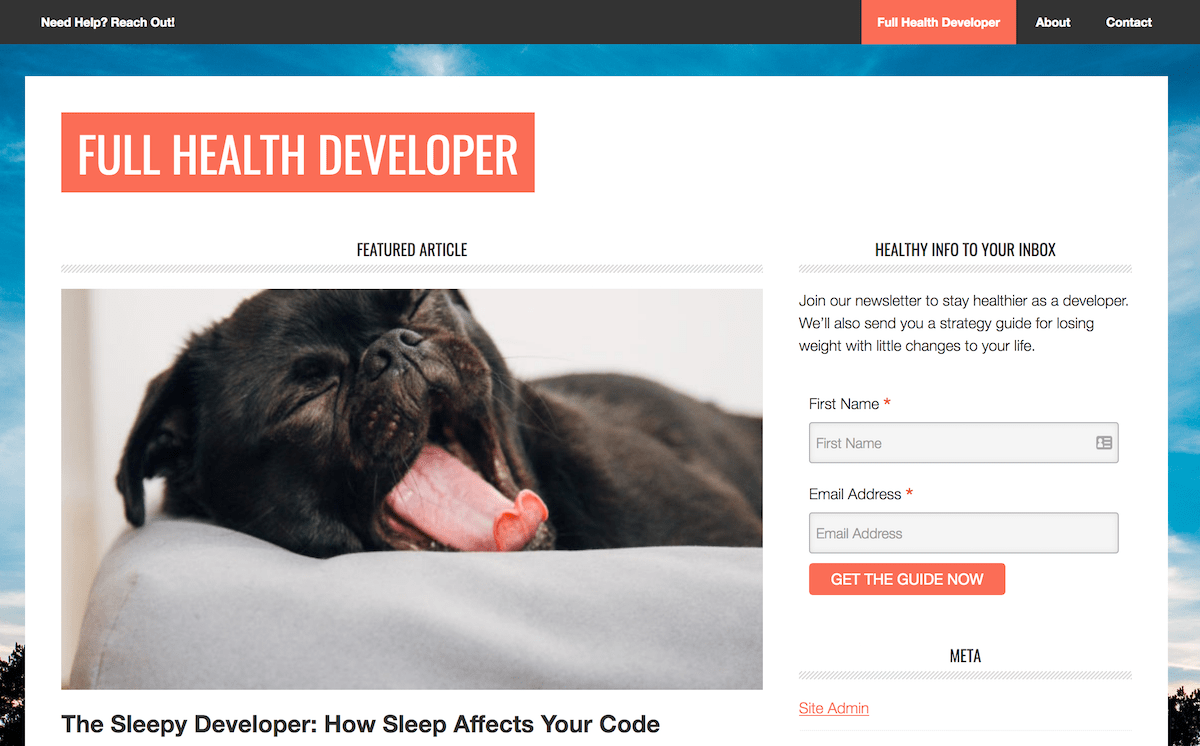The Pull Requests piled up. Each new PR added to the weight reminding me that I was not being a responsive maintainer. I felt guilty.
Guilt: A feeling held by many open source maintainers who can’t (or don’t want to) continue on a project that they manage.
Feeling guilty about contributing to open source is terrible. You feel like you’re letting people down or like you owe them something more. I think I did something good for the open source community so why do I feel this way? How could I fix this? Let’s see how I got here to begin with.
Some years ago, I started an ambitious side project called College Conductor. The project uses Django and Ember.
While building out my project, I used a Python package (this one) and found a bug. Since I care about open source, I filed an issue on GitHub and documented the details of the problem I found. Time passed and the bug remained open so I tried to do some work to shepherd the issue to release.
Fast forward past the details and I found that I was the person doing new releases for the project.
My role was declared publicly and simply: I agreed to manage PR reviews from community contributed PRs and periodically do releases. I was a project steward.
As a maintainer, I had a fairly typical experience:
- New features went out. The project stayed up-to-date with the ecosystem. I felt good about my contributions with each release.
- Issues had conflicting opinions. Discussions got heated. Communication broke down. Apologies happened.
Although I wasn’t a perfect steward, I thought I did a fine job making sure the project stayed alive.
Then things in my life started to change. Other interests and obligations pulled me away from College Conductor. Also, I concluded that my technology stack was not a good fit for what College Conductor needed.
I no longer used the Python project that I helped to maintain.
That’s when my response time on Pull Requests slowed. The queue of PRs, which was once cleared out, filled again.
When enough PR weight was on me, I finally stopped to ask the question I started with at the beginning of this post: How can I fix this?
The way I solved my troubles was by treating my maintainership as a bug. The most natural thing I could do for a GitHub project was file an issue. I titled the issue Request for new maintainer and attached a help wanted label.
The issue details included:
- My reason for wanting to step down.
- The obligations of the role for any new maintainer.
- An offer to aid any new maintainers with whatever help or training was needed.
To my surprise, two people stepped up within a day and offered to move into a maintainer role! They are users of the project and want to see it continue.
For me, that’s largely the end of my journey. I’m still chiming in as we work through the details of the transition, but I’m no longer regularly active with the project.
Maybe some of you are maintainers and worried about the other possible outcome if you tried this on your project: what if no one steps up?
If you’re running a Python project, consider JazzBand. JazzBand is focused on collective ownership of established projects that need light maintenance and can be managed by a group of maintainers. Such a group might be a great fit for your project. If you’re outside of the Python ecosystem, there might be a group like JazzBand in your community.
Others of you might have a strong attachment to your project and are wrestling with ceding control to other people. Maybe you’re afraid of the project moving in a direction you don’t agree with. For you, I’m afraid I don’t have a great answer. I would suggest weighing the emotional cost like guilt and anxiety against the value of keeping project control.
Being a maintainer can be really rewarding, but I think it’s important to remember that it doesn’t have to be forever. Any struggling maintainers should consider being honest and open with their community and ask for help if they need it. Maybe a RFNM issue is exactly the thing you need to breathe new life into your project by passing maintainership to someone who is in a better position to take care of it.
Finally, it would be terrible of me to finish this post without saying thanks. So, thanks to n2ygk and sliverc for their willingness to take over Django REST Framework JSON API as maintainers. I’m extremely grateful.


